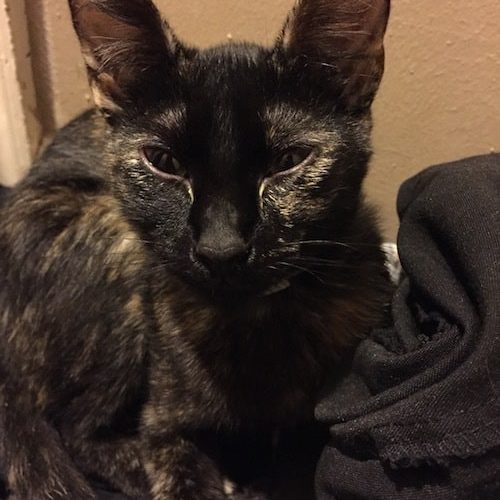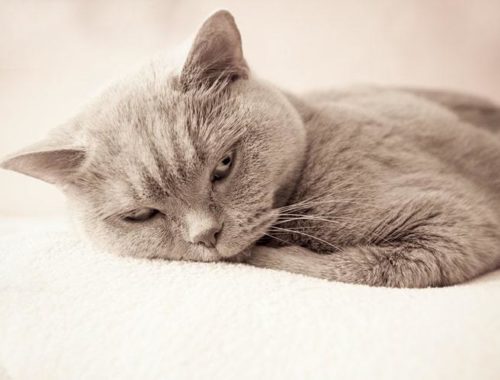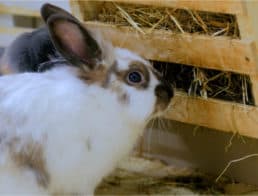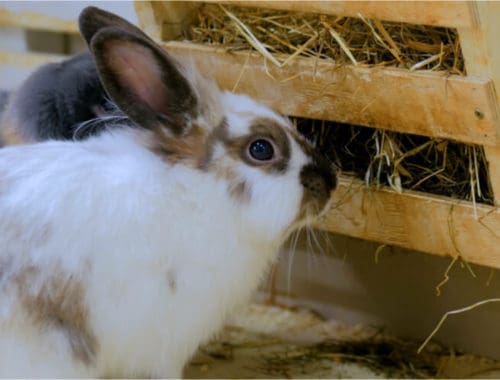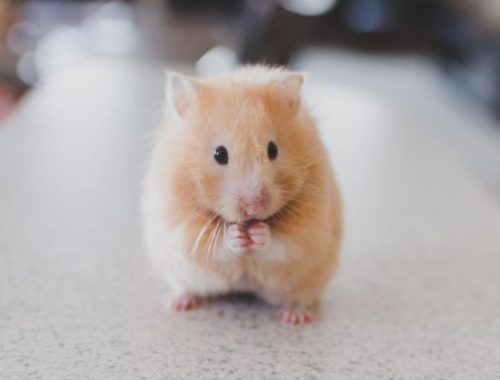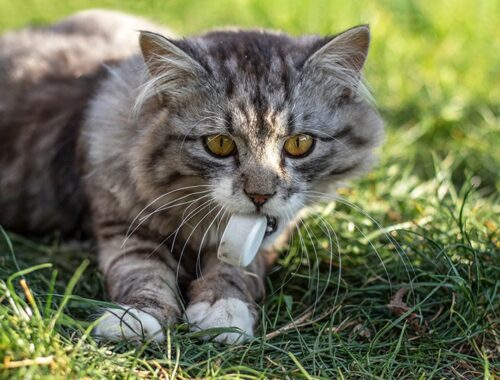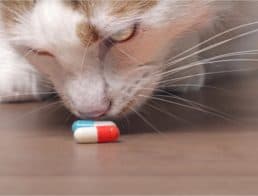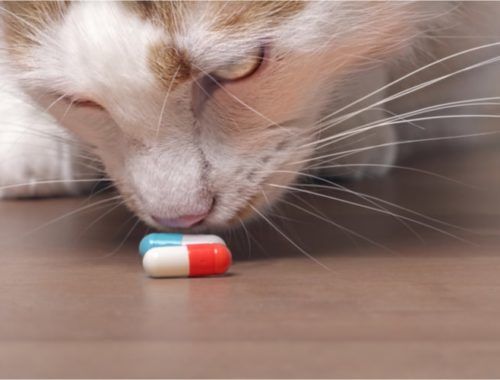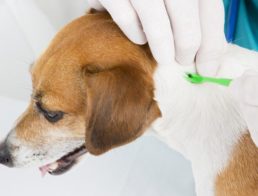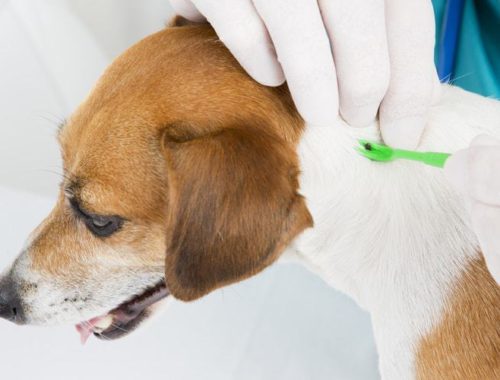Question: My cat is squinting. Is anything wrong with her?
Today we brought in a stray kitten to my house. I already have a cat and my cat didn’t like the kitten. I noticed today when I got home that she was squinting a lot and it was light pink around her eye. Is anything wrong with her?
–Erika
Answer:
Dear Erika,
Congratulations on finding a new family member! Sorry to hear that your existing cat isn’t warming up to the newby right away. I’m not sure if your new kitty or the existing kitty is the one squinting, but either way, I have a few pointers for you.
About 60% of all cats experience an upper respiratory infection by the time they reach adulthood. Cats and kittens who are housed with a lot of other cats are the most likely to pick up the virus since it’s spread, like a human cold, through sneezing and contact with other infected body fluids. Even cats without symptoms may be shedding enough virus to infect another cat.
Causes of Upper Respiratory Symptoms in Cats
The major causes of cat upper respiratory symptoms are
1. Feline herpesvirus
2. Calicivirus
3. Chlamydophila (bacteria)
4. Mycoplasma (bacteria)
5. Bordetella (bacteria)
Of the organisms in the list, herpes virus and calicivirus cause about 90% of feline upper respiratory infections. I’m happy to report that the viruses do not infect humans or dogs. The bacteria may have some cross-species activity, especially with dogs.
Feline herpesvirus is a special case because it never really leaves the cat’s body but becomes dormant. In times of stress, herpesvirus can re-activate and cause symptoms. It’s common for some cats to have flare-ups of conjunctivitis and sneezing now and then throughout their lives.
The course of the disease is similar to what we humans experience with a cold. The worst symptoms occur in the first few days, with daily improvement and return to health within 7 to 10 days.
Feline Upper Respiratory Infection Symptoms
The classic symptoms of upper respiratory infections in cats include:
- Sneezing
- Nasal discharge
- Squinting
- Watery eyes
- Crust around the eyes
- Reddish eyes and eyelids
- Poor appetite
- Coughing
- Changed voice
Treatment for Cats with Upper Respiratory Infections
The treatment for cats and kittens with upper respiratory infections depends on the severity of the symptoms. If the cat is eating, drinking, and acting normal but has sneezing and eye discharge, it’s best to just monitor the symptoms and avoid giving antibiotics.
Standard antibiotics like amoxicillin don’t kill viruses, but they can change the normal flora present in your kitty’s guts, predisposing her to digestive trouble in the future. The overuse of antibiotics also threatens human health since every time an antibiotic is given, it puts pressure on bacteria to become stronger. Stronger bacteria are resistant to antibiotic treatment and can cause serious illness in pets and humans.
Home Care for Your Cat
Give symptomatic supportive care to your cat while she’s fighting off a cold. Use a warm, wet washcloth to clean eye and nose discharge from her face as needed. Run a humidifier in the main area your cat inhabits to soothe irritated respiratory tissue.
Offer food with a strong odor if her appetite is a bit off because of a stuffy nose. Finally, lysine supplements are thought to help cats fight off the virus more quickly.
If your cat develops thick nasal discharge, stops eating, has trouble breathing or is not improving within 7 days, take her to your veterinarian right away. Your vet may prescribe antibiotics, but may also administer other treatments to prevent dehydration, etc.
Separate Sick Cats from Uninfected Cats
The last bit of advice is very important: feline upper respiratory viruses are highly contagious. Any contact between a new kitten and an established cat in the home could allow transmission of a cold.
It’s a good policy to keep any new cats separated from existing cats for about a week before letting them meet. That will allow enough time for any brewing upper respiratory infections the new cat might be harboring to become apparent.
Sincerely,
TB Thompson DVM
Disclaimer: Your use of the Ask The Vet feature is subject to the Ask The Vet Terms of Use.


